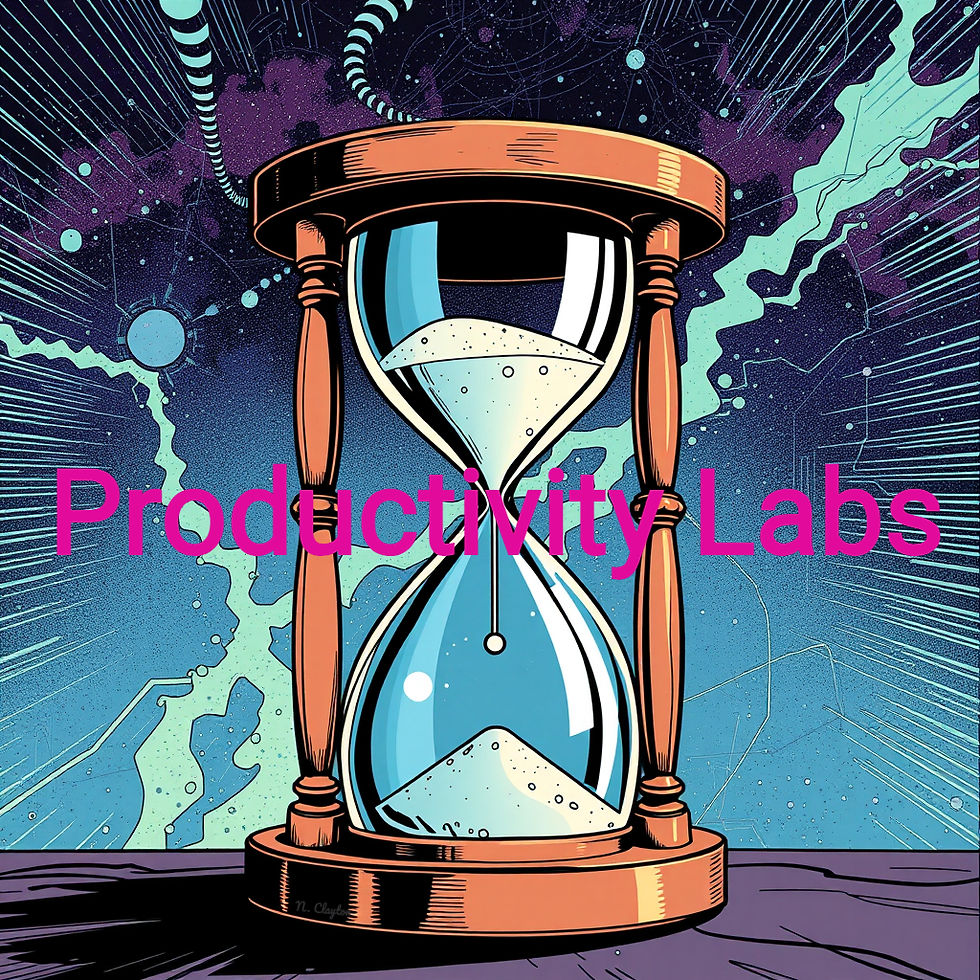Grace and Excellence: A Whole-Person Approach to Work
- Nicole Clayton

- Sep 26, 2025
- 4 min read

The Email I’ll Never Forget
Years ago, I worked with a colleague who accidentally sent the wrong report to senior leadership. The numbers were off, the formatting sloppy, and the error was noticed quickly. Eyes wide and mentally mouthing noooooooooooooooo!, I braced for impact expecting excuses or finger-pointing. Instead, she calmly sent a follow-up: “I made a mistake. Here’s the corrected file. Here’s how I’ll prevent it in the future.”
That moment stuck with me. She gave herself grace by admitting her humanity, and she held herself to excellence by offering a solution. The fallout was minimal, but the cultural impact was huge. Everyone on the team suddenly remembered they, too have permission to be honest and accountable.
It taught me a lesson I’ve carried ever since: grace and excellence are not opposites. They are partners.
The Secret Is: There Is No Secret
The secret to success? There isn’t one. We are all moving through life with some blend of privilege, effort, and luck. Pretending otherwise creates an unrealistic standard that if you just try hard enough, you’ll crack the code and reap all the rewards.
But work--and life--isn’t a code to solve. It’s a practice. And like any practice, it requires two things we don’t often talk about together: grace and excellence.
Grace and Excellence, Together
Grace means recognizing that we are human. Mistakes happen. Timelines slip. Tempers flare. Your soul will leave your body temporarily when you put your foot into your mouth. Grace invites us to acknowledge imperfection without shame.
Excellence, on the other hand, is about operating with integrity and intention. It’s not about being flawless, but choosing to do the right thing in the moment, even when it’s hard or inconvenient.
Too often, organizations set these two ideas against each other:
“Give grace” becomes an excuse for low standards.
“Demand excellence” becomes perfectionism that burns people out.
The truth is, neither works alone. Grace softens the sharp edges of accountability; excellence gives grace a direction.
What It Looks Like in Practice
Holding both grace and excellence means learning to recognize the moment you’re in and responding with humanity and responsibility.
Missed deadlines. Instead of scrambling to cover it up, acknowledge it quickly, explain the impact, and lay out the path forward.
Colleague mistakes. When a teammate stumbles in a meeting, resist the urge to call them out. Protect their dignity in the moment, then help them course-correct later.
Overwhelm. When you’re overloaded, don’t push through silently. Admit you need support, then clarify priorities so quality work still gets done.
Tense interactions. When a colleague is short with you, avoid escalating. Take a breath, model calm, then circle back when the tension eases.
None of these require perfection. What they require is presence, humility, and courage.
When Grace and Excellence Are Refused
Of course, not everyone reaches for grace when it’s offered.
I was once asked to step in and support a director-level leader. The energy behind it was simple: “I am here to support you. What’s not working? Let’s name what you need.”
Instead of openness, I was stonewalled. Responses were curt, dismissive, and defensive: “I don’t need you.” It turned out there was a lot being hidden — a pile of unpaid bills, thousands of dollars spent erroneously, deliverables not started, and above all, a bad attitude that repelled help.
I can understand being overwhelmed, underwater, and shame-riddled. But what I couldn’t figure out was: why not take the lifeline? Grace had been offered, and instead of reaching for it, this leader doubled down on denial.
The sad eventuality was that the entire truth of the reality surfaced, and it blew up in their face.
And here’s the part that has stayed with me: about six months later, after being separated from the role, that same leader reached out. To my surprise, it wasn’t with anger or excuses. It was with apology and gratitude. They thanked me for trying to help, and admitted that losing the role was the wake-up call they needed. They were forced to make changes in their life that were painful, but necessary. With some distance, they could reflect more authentically.
It was a reminder: sometimes people refuse grace and excellence in the moment. They resist accountability, they resist support, and they resist honesty. But later, when consequences come, those same seeds of grace you offered may matter more than you know.
Why This Matters for Work Culture
A culture of perfectionism produces brittle organizations. People hide mistakes, communication suffers, and trust erodes.
A culture of unchecked grace without excellence produces mediocrity. Standards slip, accountability weakens, and resentment builds.
But a culture that combines grace and excellence creates resilience. People feel safe enough to be honest and accountable enough to improve. They give and receive feedback without fear. They recover from mistakes faster because the emphasis isn’t on blame, but on repair and growth.
This balance has ripple effects beyond performance. It builds stronger relationships, reduces burnout, and creates workplaces where people actually want to stay.
Closing Reflection
Grace isn’t letting things slide. Excellence isn’t being flawless. Together, they create a culture where people can bring their full selves to work while still striving to do the right thing in the moment.
The invitation is simple:
Give grace to yourself and others when mistakes happen.
Hold yourself and others accountable to operating in excellence.
Model both, consistently, in how you show up.
Excellence in this sense becomes sustainable: not a brittle standard of perfection, but a lived practice of grace in action.
The future of work isn’t about being perfect. It’s about being human--and still doing the right thing.



Comments